Determining insurance value
Ok, this is slightly OT. We bought a foreclosed home, ripped everything out and replaced it. We went from 1988 builders grade everything, to updated semi custom everything (1500 sqf ranch if it matters to anyone). We have nearly $50,000 in materials alone into the house. We did all the work ourselves with almost 9 months into the project. Since we are nearing completion I called our home insurance company to update our coverage.
After having some difficulty getting the agent to call back I finally got an email from her, according to the computer system they use the upgrades to the house only increase the replacement value by $17,000. Say what? I said no way, that has to be wrong. She says nope. You can increase the coverage if you want to but this new figure is plenty of coverage. Again I disagree. One specific point I make is the kitchen. We did a mid range semi custom line (kraftmaid) of maple cabinet, midrange appliances and quartz countertops. She says that actually the countertops account for a large portion of the value increase. But, she says, we were already covered for cabinets and the new ones don't change the value at all. Again, say what??? My brand new maple cabinets are equal in coverage value as the falling apart builder grade oak we tore out?!?!?!?
I do get the difference in resale value and insurance value. I want the house covered enough that if we needed to replace anything we could do so with the "nicer" stuff we used this time. I also want it covered that if we were to need to repair or replace that labor costs are included, because I will never do this diy Reno thing again. Never.
So, best way to determine a homes replacement value? We were thinking it should be at least the cost of materials we put into it. Thoughts? Thanks.
Comments (46)
debrak2008
10 years agolast modified: 9 years agoI worked for 5 years (just left recently) at a company that did replacement cost inspections for insurance companies. The common programs used usually just rate kitchens and baths as builders grade, semi custom, custom, or designer. Designer is rarely used. Builders grade is basic cabinets and laminate counters. Custom would have a least three of the following. A solid surface counter, island, solid wood cabinets, built in appliances. I agree with your agent who says the cabinets were already in the calc and based on what you said your kitchen is now semi custom from builders grade so a $17,000 increase seems reasonable. Each zip code is rated differently for labor costs.
Keep in mind all that money you spent on the house does not increase the value by that amount. No reno gives you 100% back unfortunately.
This post was edited by debrak2008 on Thu, Dec 19, 13 at 7:33
GreenDesigns
10 years agolast modified: 9 years agoHGTV has everyone bamboozled. Renovations are expenses not "investments". You were darn lucky to get a 17K increase in valuation for insurance. For resale purposes, you might get 60% back increase in value of a major kitchen redo if your choices were smart--in the right market. And that's if you sell right away. In 7 years time, the kitchen won't be brand new and won't give you any bump in value.
Here is a link that might be useful: Cost vs. Return, National Figures.
Related Professionals
Bethpage Kitchen & Bathroom Designers · Flint Kitchen & Bathroom Designers · Gainesville Kitchen & Bathroom Designers · Greensboro Kitchen & Bathroom Designers · Lafayette Kitchen & Bathroom Designers · Olympia Heights Kitchen & Bathroom Designers · Bremerton Kitchen & Bathroom Remodelers · Morgan Hill Kitchen & Bathroom Remodelers · Waukegan Kitchen & Bathroom Remodelers · Crestline Cabinets & Cabinetry · Holt Cabinets & Cabinetry · Mount Prospect Cabinets & Cabinetry · Prospect Heights Cabinets & Cabinetry · Stoughton Cabinets & Cabinetry · Gladstone Tile and Stone Contractorschrissyb2411
Original Author10 years agolast modified: 9 years agoJust to clarify, the $17000 increase in value was the entire house, kitchen, custom vanities in 2 bathrooms, tile in bathrooms, brand new upgraded everything, windows doors, heating/ac. She also said a big portion of the increase in value was due to the fact that they did not have our house evaluated as having hardwood floors. So this is right? By adding $50,000 in material costs alone we have added little to no replacement value to the house?
kksmama
10 years agolast modified: 9 years agoThe important thing is that you'll get like for like replacement if a loss occurs. Don't get caught up in the increase in valuation, you may have gotten more than the real value of your old kitchen if a loss had occurred. When I paid for my demo I was essentially saying my kitchen's value was less than 0, because I paid to have it torn out and hauled away to get a clean slate for my new kitchen. But if a covered insurance loss had occurred the day before demo, the insurance company would've written me a check for tens of thousands. Here is how the math could work:
A = Value to me before demo = -2000
B = Value to insurance company before demo = 35k
C = Value to me after remodel 60k
D = Value to insurance company after remodel 60k
Change in value to me (C - A) 62k
Change in value to insurance company (D-B) 25kDoes this make sense?
You many feel better if you see that it was over-valuation of your old kitchen that was the difference. Not under-valuation of your new kitchen.chrissyb2411
Original Author10 years agolast modified: 9 years agoGreendesigns, I understand that the resale value is a different animal, one I don't give a hoot about as we plan to stay here. What I do care about is having enough coverage to replace things with new things of the same quality if the need arises. How can it be possible that the replacement value of semi custom maple cabinets is no different (what the agent said) than the replacement value of builder grade oak / laminate cabinets? If something happens to my kitchen and I need to replace just the kitchen does my insurance pay only the lowest amount possible?
The replacement value they are quoting us wouldn't even be enough to build a new lower grade home in our area (we looked at some new construction, basic grade everything priced at double our replacement value. Factoring out land in the equation they still wouldn't even be close).
So, my question is again, what's the best way to figure out the replacement value? Hire someone? We had a bank appraisal, is it worth having an appraisal from someone specifically looking at replacement costs? If so, where do we find such a person?
chrissyb2411
Original Author10 years agolast modified: 9 years agoThank you kksmama, yes that does make sense. But the problem is I don't think (think being the major word here) that the replacement value given to us would build a new builders grade anything, never mind cover what we actually have. I need a way to figure that part out. How much would it cost to replace/ rebuild at the same quality? We diy'd the whole thing, I would never do that again. But because we did, I have no idea of labor costs. We could guesstimate we would have paid probably $30,000-$40,000 in labor costs based on what we have seen. But don't know for sure.
Also, because the house was a foreclosure, we paid much less for it than it was worth (replacement or resale wise). The insurance company used the sale price as a base, saying we could rebuild the house for what we paid for it. Not so much. It didn't matter much at first, but now that it's done it's more important to us. After a large cash investment, and even larger time investment, the thought of having to downgrade if something happened and we didn't have enough coverage is not appealing.
User
10 years agolast modified: 9 years ago" If something happens to my kitchen and I need to replace just the kitchen does my insurance pay only the lowest amount possible? "
You got it. If you want things insured for more, you have to pay for a rider for the additional coverage. Or find a company with agreed value coverage, and pay the additional overall premium rather than a rider for specific targeted coverage.
kksmama
10 years agolast modified: 9 years agoYou might feel better if you talked to a lawyer, or someone in your state's insurance regulation office. The key question is whether your insurance company is legally obligated to replace what you've lost with like quality. During big disasters (hurricanes) the costs of replacement increase drastically because labor and materials are in short supply. Who is at risk for those increased costs? If we have runaway inflation next year, who is at risk for those increased costs? If your loss exceeds your policy limit (and the policy limit was set by the insurance company in accordance with regulations), who is at risk? You should carefully document (with pictures and brand name details) what you have so there is no argument about whether your fridge was a Kenmore or Sub Zero, or whether your floors were sheet vinyl or high quality engineered hardwood or reclaimed antique heart pine.
It is the opposite with things like electronics. I paid thousands for my big TV a few years ago, replacing it now with like quality would cost much less and that is the amount insurance would pay.User
10 years agolast modified: 9 years agoI've been in your shoes and while I totally understand where you are coming from....you may have to chalk this up as one of life's lessons.
I blame HGTV too. :)
Will the agent come out and do a walk through with you? That was one thing that helped me out in my situation.
I built a new house, had clear documentation for what everything cost, and still ended up feeling under-insured. The bottom line is that what you paid for it doesn't have much role in determining its insurance value.
debrak2008
10 years agolast modified: 9 years agoPerhaps you were over insured before. The replacement cost includes the prevailing labor in your area. This is usually updated every three months on most calc tools.
On the cases I worked on it was common to see a big difference in the calculated rct compared to the current insurance coverage. Why? The agent just guessed on it and no actual inspection was done. The homeowner demanded it be insured for the sale price.
Was an actual interior an exterior inspection done? For the exterior a third party will come out and measurement the house, take photos and note hazards. MOST of the time the homeowner as no idea this was done as in most cases there is no prior notification. An interior of course you would no about. They would do the exterior and then come in and grade the kitchen and bath based on what I said before. Some photos would be taken.
Ask you agent if an exterior was done. If so get the third parties name and you can request a copy of the report. If you want request an interior inspection but I don't know how that will change anything.
katy-lou
10 years agolast modified: 9 years agoHave you thought about having the house re-appraised? Then use that appraisal as the basis for adjusting the insurance value?
jellytoast
10 years agolast modified: 9 years agoI am having the exact opposite problem in that I think my carrier is over-valuing my house and charging me an inflated premium that isn't warranted. When I called to ask them about it, they told me that my renewal offer was just that ... an OFFER ... and I could decline it if I wished. Ouch!
nosoccermom
10 years agolast modified: 9 years ago"Replacement Cost value is the amount it would cost to repair or replace an item with one of the same kind and quality as the original �" in today’s market."
From Ameriprise Insurance.
It's obviously different from actual cash value, or I'd have to pay my insurance in case something happened to my house.
So, I'd document the quality/cost of the items in question.
blfenton
10 years agolast modified: 9 years agoCheck to see if you have Guaranteed Replacement Value. If you do and the agent/insurance company have set the replacement value using their own calculator then you should be good.
Take pictures of everything. They don't care about the before status only the current status. Keep receipts and quotes which describe what you have put into the home.
If you know a contractor ask them what the current square footage cost to build a semi-custom rancher would be.
The sale price of your house has absolutely nothing to do with the replacement cost of construction.
You are probably dealing with an insurance agent and not the company. If you are concerned talk to another agent.
I found this site on the internet which is done by consumer reports. I'm not trying to make an expert out of you that's for sure but it may help you to understand what goes into figuring out replacement cost of a home. There is a free estimator on this site. At the end of the calculations it's broken down by state and postal code.
Here is a link that might be useful: replacement cost estimator
weissman
10 years agolast modified: 9 years agoYou said in your original post that you can increase your coverage to whatever you want. You should do that. Keep receipts for your materials, appliances, etc. so you can document you replacement costs should the need arise.
kksmama
10 years agolast modified: 9 years agoThat is a great link, blfenton.
As Jellytoast suggests, getting the "right" amount of insurance is important. Overpaying for inflated valuation won't get you overcompensated in the event of a claim, it is a waste of premium dollars. (I'm concerned the OP would've been happy for the agent to announce that her house was now worth 100k more and her insurance rates were going up - that would not have necessarily been good news). Of course, none of us want to be under-insured and unable to replace what we have worked so hard to create in our homes.
Knowing what your policy covers and what you really need isn't easy, and I'm not sure the industry intends for it to be. And it varies by state, and by insurance company, and by policy. Claim procedures are a whole 'nother matter - which depends on the company, policy, individual adjuster, who is at fault, etc.
I don't have any professional experience with any of this, and wish I knew less than I do (learned via personal experience).kailuamom
10 years agolast modified: 9 years agoHi - I have been in the insurance industry for a looong time. I currently work for a company which insures homes..
First, these days the replacement cost estimators can be extremely detailed and 95% of the detail can be skipped by a lazy agent. For instance, the software typically defaults to a lower grade, but can be changed - for even the most minute details. in ours, you can enter number of windows, sinks, grade of fixtures.....
However, when I travelled through the Houston area to train agents on how to use this software - they ignored all but the fields that were required.
Now, one out of the 17 offices I trained, got into the detail, learning how to add built ins, and high end materials.
SO - at the end of the day, it is wonderful to hear an insured who really wants it right. The replacement cost is what it will take to rebuild after a loss. Not when you are planning and shopping for the best buys. Not when the lot has been prepped and you are starting from scratch...
I would ask your agent for a print out of the "RCT" (industry term for replacement cost tool so you can check to ensure they really "got" your home. If the detail isn't right, you may want to get a second opinion from an independent agent who can look at many companies for you.
BTW - how much per square ft of coverage did you end up with?
Vertise
10 years agolast modified: 9 years agoLinked is a summary from State Farm on replacement value, which is how I understand it; not as some of the statements above.
I disagree that "renovations are expenses not investments". Fixing our houses up and keeping them in a good state increases their market value and desirability. Even if you don't plan to move, it provides a nest egg for when the time comes that you are no longer able to care for yourself. For the average person, their homes are usually the biggest investment they have.
People also make very good money, as well as fortunes, investing in and/or turning over properties, which often requires renovations to capitalize on or move them to market.
Here is a link that might be useful: Home Insurance Coverage
chrissyb2411
Original Author10 years agolast modified: 9 years agoThanks so much for all the input.
/debrak2008, no there was never an inspection done, inside or out. She asked for pictures of the front and back of the house and of the wood stove. That was it.
Katy-Lou, yes I have thought having the house re evaluated might be a good idea, but who should I get an appraisal from? I don't really care about resale value, just replacement value.
Blfenton, I had actually found accu coverage today. I paid the $7.95 and went through the whole thing (it's very detailed). It gives me a replacement cost of $88,000 more than the State Farm agents adjusted quote. That makes state farms quote only 2/3 of the accu coverage.
Kksmama you are right, I don't want to overpay, and trying to understand all of this is confusing! I'm trying. We have actually been somewhat unhappy with our insurance recently. We had a lightning strike in our back yard that surged into the house through the cable lines, very strange thing. DH handy man that he is had to replace some big underground wire in the back yard etc. anyway, the surge fried the inputs to 3 TVs, 2 game consoles, a receiver and DVD player. We haven't filed a single claim with this company in the 15 years we have had multiple policies with them. Decided there was enough damage we would. They have made the claims process so insanely difficult we gave up. So I'm not so sure I want to stay with them
/kailuamom I wonder if you hit the nail on the head with this. The only question she asked initially was if the house had stone counters. She had detailed photos from the home appraisal that clearly showed wood floors and tile, but did not have those included until I called her with the upgrades. After seeing the detailed questions on the accu coverage site I'm fairly sure this is part of the issue.
Again, thanks for all the help everyone. I played phone tag with the agent today, will try again tomorrow. In the mean time I think it's time to shop around and try to understand coverage more clearly.
weissman
10 years agolast modified: 9 years ago>>>We haven't filed a single claim with this company in the 15 years we have had multiple policies with them. Decided there was enough damage we would. They have made the claims process so insanely difficult we gave up.
Sadly, this is true of the insurance industry in general. They're happy to take your money but god forbid if you should want to file a claim. What's even worse is that if they do pay out on a claim, they'll raise your rates, cancel you, and/or blacklist you as a bad risk so other insurance companies won't insure you even if your claims are legitimate.. Fortunately, I've heard that some states are at least trying to prevent the blacklisting thing.
chrissyb2411
Original Author10 years agolast modified: 9 years agoInteresting to know Weissman. I remember about 5 years ago State Farm in NH was investigated for denying claims from ice storm damage that should have been paid. I should have listened up then I think. My only excuse was I was 9 months pregnant and not inclined to make any other changes in my life lol.
chrissyb2411
Original Author10 years agolast modified: 9 years agoInteresting to know Weissman. I remember about 5 years ago State Farm in NH was investigated for denying claims from ice storm damage that should have been paid. I should have listened up then I think. My only excuse was I was 9 months pregnant and not inclined to make any other changes in my life lol.
katy-lou
10 years agolast modified: 9 years agoI'm not sure, we have just put a ton of money into our house (kitchen and a bunch of other stuff) as a part of the kitchen renovation, so we're having the house re-appraised by a local appraiser. Then will go back to the insurance to adjust coverage. We actually had to do the kitchen because of a loss (water leak) and it was difficult to get SF to come close to paying out what stuff was worth - mostly the cabinets as their software just didn't account for what we had. Now we've gone back with much nicer than what we had and I've talked to the agent about how to get it correctly recorded. I've of course got receipts now, but she said she would come visit so she can help relay what we've done and get it captured in their system. Maybe it would be helpful to switch agents? That's pretty easy to do and then you're not having to change carriers?
debrak2008
10 years agolast modified: 9 years agoOne more thing. I would really get your house measured even if you have to do it yourself. You measure on the outside walls. Draw a sketch and be sure to indicate any changes in foundation. In my job I know that any change in foundation SF or in total SF would mean a change in the calc. Sometimes a small change made a big change in the replacement cost. DON'T assume you have 1500 sf. Measure or get someone who can do it accurately.
With our house the tax records stated that the house was 1100 sf. Upon having an architect measure to do a diagram, it was found that the house was actually smaller. At my job I saw this all the time; the tax records did not match the house.
live_wire_oak
10 years agolast modified: 9 years agoFor those who think spending money on a remodel of your home is an "investment", I'd just like to know what type of "investment" loses 30% of it's value in a best case scenario?
All remodels add less value to the home than they cost to do. They cost you money, not put money into your pocket. If all of your investments lost 30 cents on the dollar with their absolute best performance, no one would ever put money into anything but their mattress ticking!
Now, I'm not saying you aren't purchasing some value for that lost 30%. You are purchasing a better looking home, and hopefully a more functional one. But, the only smart long term projects in a home are ones that add square footage and create better functionality. If you don't overdo it, and are willing to wait for the long term, you can probably get your expenditure back in a higher sales price in 7-10 years. But, if you start calculating the interest paid on a home improvement loan vs. the interest earned in even a low returning investment, you may just get depressed all over again.
Here is a link that might be useful: Cost vs. Value from Remodeling Magazine
Vertise
10 years agolast modified: 9 years ago“If you don't overdo it, and are willing to wait for the long term, you can probably get your expenditure back in a higher sales price in 7-10 years. ”
That's pretty much what I was saying. Our homes are our nest eggs. Think of the future value. If you ignore it, don't “invest” in it over the years, it will lose value not appreciate. You don't want your house to be a bargain when you need to cash in on it.
“But, the only smart long term projects in a home are ones that add square footage and create better functionality. “
I don't agree with this statement either. It doesn't have to be a large re-design project in order to capitalize (if that is your ultimate goal).
How much bang for the buck depends on all of a project's variables, not just a blanket formula. Although those can still serve to lower your expectations, in terms of a reality check. Even with a sound project, no one knows what the future holds for the whims of a market or future of a neighborhood.
If financial return is your only goal, you need to look at the house and project specifics, applied to geographic area, neighborhood, current market conditions, buyer pool … I don't think it's simply like buying a car where it loses half its value as soon as you drive off the floor. There is future value. Of course you can price yourself out of the neighborhood and not get a good return. Some common sense is necessary. And while some projects might not get an immediate return, even those could still pay off in the end. I don't think all that can really be predicted either.
When evaluating a project, you might also factor in a deduction to the ROI for how much it means to you personally. How much it improves your enjoyment of the home and serves your lifestyle. It all doesn't necessarily need to be recouped financially and can be just as important. If it's something you are doing for yourself, to live more comfortably, then a 60% return is pretty good, imo.
Linked is what I think is a good article, on This Old House. Seems to have a bit of a different view than the usual ROI charts, stating that some projects can pay for themselves. From that article:
Projects That Pay
Not all remodeling projects are created equal. "People buying a house look first at kitchens and baths," says Kermit Baker, director of the remodeling futures program at the Joint Center for Housing Studies at Harvard University. So while these rooms can be the most costly to redo, they're more likely to pay for themselves. Adding rooms, such as a family room or master suite, also tends to fare well at resale time: Bigger homes command higher prices.I've heard that siding, windows and doors are others that are supposed to pay off.
These are many of the things the OP said they have done.
People make real estate investments for a good reason. A developer bought up a neighborhood here, totally renovated the houses; pretty much cosmetic except for new hvac and windows type of thing; but no SF or functional changes. Same house but updated. They sold for twice as much.
People flip houses because they make a profit (I think those are just cosmetic/appliance updates a lot of the time).
Real estate agents often advise sinking some money into cosmetic changes because it pays off (even when it seems very wasteful to, say, install an expensive stone counter that the next guy will probably rip out).
They do it because it makes money, not to accumulate expense.
So to say renovations are expenses not investments is not true, imo. Maybe those people are overbuilding.
Here is a link that might be useful: TOH article
This post was edited by snookums2 on Sat, Dec 21, 13 at 12:42
Vertise
10 years agolast modified: 9 years agoOn the OP's house. It was a 1988 foreclosure. Sounds like a bit of a fixer upper. They have made many of the payoff updates. Research what similar homes in the neighborhood selling for. More than $50,000 than what you paid for it? If you have brought the house up to market you could very well have made a tidy profit already, having purchased the home for a bargain.
Hang onto it, keep it in good working order, and keep it reasonably marketable, and you could make quite a bit more over the long haul. Home values in this neighborhood have generally increased 17 times their original purchase price over the years. We paid cash. You could also look at the future value of some of this house's project money over the years and probably conclude those have paid off in the end.
shannonaz
10 years agolast modified: 9 years agoYou are not crazy. We did extensive remodeling and I wanted our home insurance to reflect that. Our agent had an expert come out and look around and take pictures etc. The person was in our house for an hour and asked questions about materials etc. Our bathroom remodel was due to a leak that we filed a claim for. Good insurance companies and good agents are out there!
ILoveRed
10 years agolast modified: 9 years agoIf your house burns, you'll have to fight for every penny no matter what it's insured for....unless it burns to the ground.
Ask me how I know?
Vertise
10 years agolast modified: 9 years agoThis looks like a good summation and list of insurance pointers, including things you can do to address replacement costs.
Here is a link that might be useful: 10 things about homeowners insurance
kailuamom
10 years agolast modified: 9 years agoA couple of points....
Chubb is known for excellent claims service as well as good inspectors who will value your property. They are also known as the most expensive company. Kind of like your Wolff range. State Farm is like your GE, then there are some companies in the catastrophe prone states that would be like your coil top whirlpool range. All of them will boil water, but there are a lot of differences. Unfortunately, consumers often see insurance as a commodity and never take into account quality of company.
"Blacklisting" doesnt happen. What does happen.... All losses for all companies are entered into a database which companies subscribe to. This is owned by Lexus nexus. When you go to purchase insurance your prior claims are included as a rating basis. You ay be surcharged or denied coverage based on the information pulled - companies have diverse underwriting guidelines. This means that based on a claim history, some companies might surcharge you. Others may decline the risk altogether and others may do nothing. There is no overall "blacklisting".
16 years as a customer..... This should be important, unfortunately it rarely is. Three years is the typical "experience period" that your company is looking at. So, if you go 10 years with no losses, but then have three over two years, your 10 years claim free really won't be taken into account.
If your house burns, you may have trouble getting every penny from your company - or not. This depends on the quality of your company and sometimes your agent. That said, sometimes people think things should be paid for that are just not included in the policy. Often when buying a policy, consumers are in a hurry because their loan is about to close and insurance is the last detail - they never ask questions, just assuming everything is covered.
chrissyb2411
Original Author10 years agolast modified: 9 years agoThanks everyone. This is becoming extremely complicated. I really wish we could just live in a time were we trusted the insurance agent to do what was best for us. Wishful thinking. I'm still playing phone tag with the agent, but I'm going to get some other quotes.
Whoever mentioned making sure we have accurate measurements, we do. We had a professional appraisal for the insurance company and I have a copy. What I need to do is get a safe to store all the appraisals, receipts and photos in. So much to do!
kksmama
10 years agolast modified: 9 years agoYou could consider storing all that documentation in the cloud, maybe via something like Evernote, or a computer backed up via Carbonite. Or use a safe deposit box at a local bank or credit union. I'm sorry it is complicated, but good for you for thinking it through!
Vertise
10 years agolast modified: 9 years ago" I really wish we could just live in a time were we trusted the insurance agent to do what was best for us. "
It's a shame so many companies are crafty and elusive. If you want top of the line replacement coverage, though, don't think you won't be paying for it, as noted above. They are taking on a lot of financial risk and exposure. That is for a premium.
Just don't get duped into thinking you have it when you don't! They can get very tricky with the language, technicalities and fine print. There are no free lunches. So buyer beware.
suzanne_sl
10 years agolast modified: 9 years agoYour question and dilemma are certainly valid and important. I wish I had answers for you. I don't, but I do have a cautionary tale.
In Oct. 2003 and 2007, there were several major fires that burned through various portions of San Diego County causing the loss of thousands of homes. At least one of those fires was in a higher wealth area relatively close to the San Diego core. (When you get to the fringier parts of the county even the local TV people have no idea where you are, so there is a corresponding feeling of "not us.") Many of these people discovered that they were so under-insured that they couldn't rebuild. In addition, insurance companies were well into the "so sorry" dance by the time the State Insurance Commissioner made a personal appearance and took a personal interest. Things changed. I couldn't tell you how things worked out eventually, but the under-insured problem wasn't just some dummy who was so cheap he wouldn't cough up for actual replacement cost - it was industry wide for the whole area. What the insurance companies insisted was adequate for the area turned out to be significantly below market costs.
DH's uncle lost his house in the Oakland Hills fire in 1991. All that was left was a lump of metal that used to be his car in the garage and the untouched mailbox on the sidewalk out front. He was an insurance agent. Even with his "good" coverage, it cost $750,000 to replace his house, but his insurance only covered $600,000 of it. This was a direct replacement house; the only upgrades were in bringing things like the rise/run ratio of the stairs up to current code. Part of the difference was the predatory practices of the building industry in response to the need rebuild so many houses all at the same time, but that too is a direct result of such a disaster.
You need to persist in your quest to acquire coverage that would rebuild your house or a portion of it in case of need. Signing off on the first thing an insurance company flings your way is kind of like checking Zillow to determine the selling price of your house. It's probably in the general neighborhood, but you'd be a fool to list your house at that price without further investigation.
ideagirl2
10 years agolast modified: 9 years agoHave you shopped around for insurance? No law requires you to stay with this insurer...
kaismom
10 years agolast modified: 9 years agoWe had to have a special appraisal to increased the value of insurance.
We had a fire in an investment rental property years ago. (caused by a careless tenant). They paid just enough to do a builder grade replacement. So we KNOW how difficult it is to settle with an insurance company when needed.
You also need to pay attention to the value of expensive items; artwork, antiques, jewelry, piano etc.
kailuamom
10 years agolast modified: 9 years agoSuzanne's - what a great post. Actually, the Oakland hills fire changed the entire industry. After the fire, companies took proper valuation seriously. However, after the smoke cleared, agents and insureds have forgotten the devastation and want the cheapest price. Every day, I have agents complain that values are just too high. Not to say high is better - right is most important.
One thing for all of you... There are a couple of important protections you should ask your agent about....
Extended replacement cost - in the event of a total loss, what percentage over coverage A will the company pay?
In some catastrophe prone areas, there is no extended replacement cost available, but demand surge is available. This is an extra percentage which covers the increases in costs after a catastrophic loss - like that fire. When thousands of losses take place at the same time, prices go up, and you wouldn't necessarily have valued for that.
chrissyb2411
Original Author10 years agolast modified: 9 years agoThanks again everyone. So here's my update.
I had no luck getting In touch with the agent we had used originally, and wasn't willing to drag my two kids along to go to the office. So I passes the issue off to dh who walked into the office without an appointment and asked to speak to someone. ( he makes a good squeaky wheel lol). The agent I had been dealing with was not available so he got someone else. She gave him the same song and dance about "a cabinet is a cabinet, a door is a door" etc. except having looked closely at our policy we knew we were covered for the option of "similar construction" for replacement cost, not standard construction. (It's extra). So, he pulled out receipts and photos etc. finally she agreed to open up the software they use, and spent 20 minutes with him going over the details of the house and the material used. That brought the replacement value up $60,000 (as opposed to the original $17,000). Quite a difference. We will be photographing and storing receipts just in case.
So, the moral of the story, your agent should be thou rough, not lazy. Know your policy. And make noise if needed. Thanks again for all the advice!
blfenton
10 years agolast modified: 9 years agoJust a quick note - store your receipts and photos off-site. Store them in a safe deposit box or a relatives home.
(Says she who has them all stored in the basement and was an insurance property underwriter in her past life!)
Vertise
10 years agolast modified: 9 years agoAfter all that, do you really have confidence in your insurance company and their agents after they dropped the ball on something so important as that?
I think you need to beware of what else might potentially be lurking, or lacking, in your coverage or the quality of the company itself, in the face of a disaster. At the very least, get a carefully selected outside party with no conflict of interest to review your policy.
This post was edited by snookums2 on Sun, Dec 29, 13 at 14:39
chrissyb2411
Original Author10 years agolast modified: 9 years agoNo snookums2, I do not have a lot of confidence in them. But at least I feel a little better until everything settles down and I can actually devote some time to really shopping for appropriate insurance. And I feel better knowing we were not completely off base, they were. Today was my daughters birthday, which signals the end to the holiday season for me. We are going to start packing this week, and slowly moving in while dh finishes the tile in the half bath. Once we are settled in I plan on addressing the insurance issue again.
kksmama
10 years agolast modified: 9 years agoThank you for updating this useful thread, I hope it keeps bumping up for awhile so that I'm prompted to address my insurance, too!
Jeremiah Clark
8 years agoThe real problem is the insurance company will never give you the actual value of what you have without a fight. Google "good hands to boxing gloves" The insurance companies are a bunch of crooks..
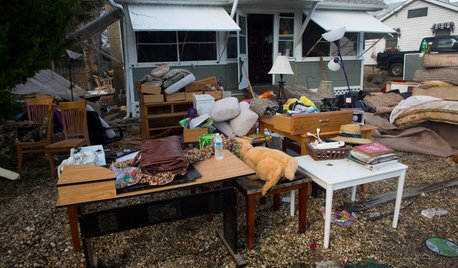

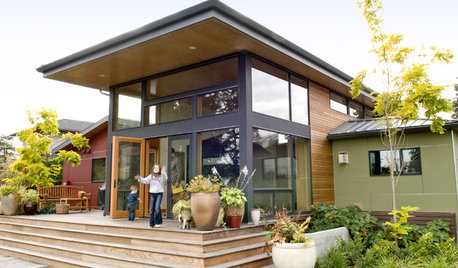
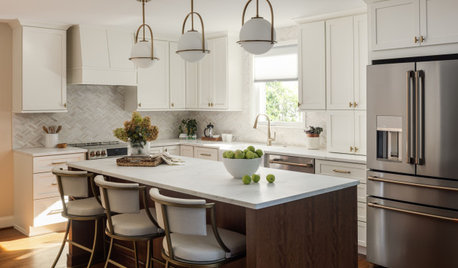


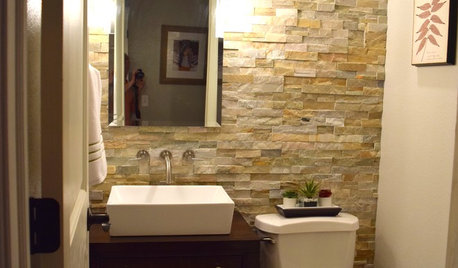

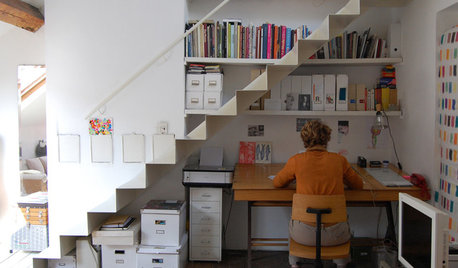
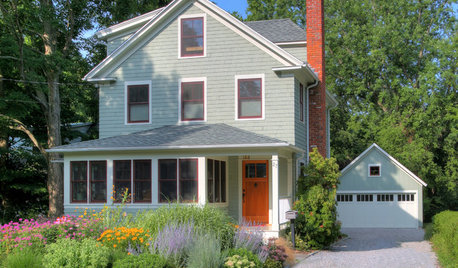










daisychain Zn3b